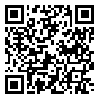Volume 2, Issue 3 (2022)
jpt 2022, 2(3): 269-282 |
Back to browse issues page
Download citation:
BibTeX | RIS | EndNote | Medlars | ProCite | Reference Manager | RefWorks
Send citation to:



BibTeX | RIS | EndNote | Medlars | ProCite | Reference Manager | RefWorks
Send citation to:
Farsian K. Inconsistency in Science; an Argument for the Possibility of the Paraconsistent Philosophy of Science. jpt 2022; 2 (3) :269-282
URL: http://jpt.modares.ac.ir/article-34-64565-en.html
URL: http://jpt.modares.ac.ir/article-34-64565-en.html
Deptartment of Philosophy and Logic, Faculty of Humanities, Tarbiat Modares University, Tehran, Iran , kasrafarsian@gmail.com
Abstract: (3365 Views)
According to some important philosophers of science, such as Popper, Hempel and Tarski, consistency is a necessary condition of establishing any scientific theory. They hold that all inconsistent scientific theories are uninformative, meaningless or deficient. In this paper I will first argue against their clams, then I consider some inconsistencies which happened at the heart of some well-accepted scientific theories (Empirical or Non-Empirical), and by this I will try to open the door for the possibility of the paraconsistent philosophy of science.
Keywords: Paraconsistency, Philosophy of Science, Contradiction in Science, Paraconsistent Logics, Graham Priest
Article Type: Original Research |
Subject:
Philosophy of Science (Analytical)
Received: 2022/05/18 | Accepted: 2022/08/24 | Published: 2022/09/19
Received: 2022/05/18 | Accepted: 2022/08/24 | Published: 2022/09/19
References
1. Aristotle (1984). The complete works of Aristotle: The revised Oxford translation. Princeton: Princeton University Press. [Link]
2. Brady RT (1971). The consistency of the axioms of abstraction and extensionality in a three-valued logic. Notre Dame Journal of Formal Logic. 12(4):447-453. [Link] [DOI:10.1305/ndjfl/1093894366]
3. Brady RT (1989). The nontriviality of dialectical set theory. In: Priest G, Routley R, Norman J, editors. Paraconsistent Logic: Essays on the Inconsistent. Munich: Philosophia Verlag. pp. 437-470. [Link] [DOI:10.2307/j.ctv2x8v8c7.19]
4. Brady R (2006). Universal Logic. Stanford: CSLI Publications. [Link]
5. da Costa NCA (1974). On the theory of inconsistent formal systems. Notre Dame Journal of Formal Logic. 15(4):497-510. [Link] [DOI:10.1305/ndjfl/1093891487]
6. Davey K (2014). Can good science be logically inconsistent?. Synthese. 191(13):3009-3026. [Link] [DOI:10.1007/s11229-014-0470-x]
7. Farsian K, Hodjati S. (2021). Graham Priest on reconstruction of Hegel's logic and metaphysics in modern logic. Journal o Philosophical Thought. 1(1):61-77. [Persian] [Link]
8. Farsian K (2020). Reconstruction of Hegel's logic through the modern logic: Paraconsistency or trivialism?. Logical Studies. 11(2):173-188. [Persian] [Link]
9. Hempel C, Jeffrey R (2000). Selected philosophical essays. Cambridge: Cambridge University Press. [Link] [DOI:10.1017/CBO9780511815157]
10. Mortensen C (1995). Inconsistent mathematics. Dordrecht: Springer. [Link] [DOI:10.1007/978-94-015-8453-1]
11. Mortensen C (2017). Inconsistent mathematics (August 18, 2017). In: Zalta EN, editor. The Stanford Encyclopedia of Philosophy. Available from: https://plato.stanford.edu/archives/fall2017/entries/mathematics-inconsistent/ [Link]
12. Popper K (2002). The logic of scientific discovery. London: Routledge. [Link]
13. Priest G (1998). What is so bad about contradictions?. The Journal of Philosophy. 95(8):410-426. [Link] [DOI:10.2307/2564636]
14. Priest G (2002). Inconsistency and the empirical sciences. In: Meheus J, editor. Inconsistency in science (Volume 2). Dordrecht: Springer. [Link] [DOI:10.1007/978-94-017-0085-6_7]
15. Priest G, Routley R (1984). Introduction: Paraconsistent logics. Studia Logica. 43:3-16. [Link] [DOI:10.1007/BF00935736]
16. Tarski A (1994). Introduction to logic and to the methodology of the deductive sciences. New York: Oxford University Press. [Link]
Send email to the article author
| Rights and permissions | |
 |
This work is licensed under a Creative Commons Attribution-NonCommercial 4.0 International License. |






